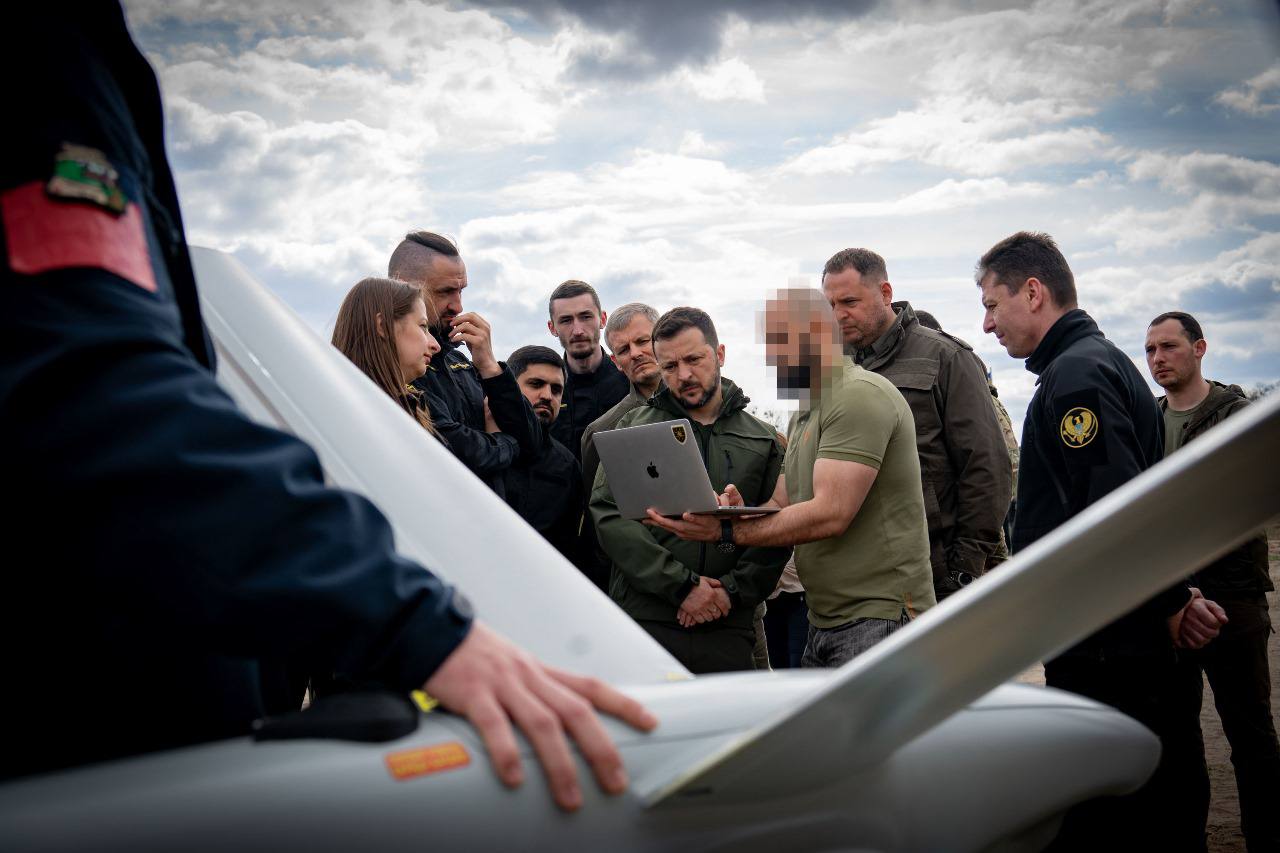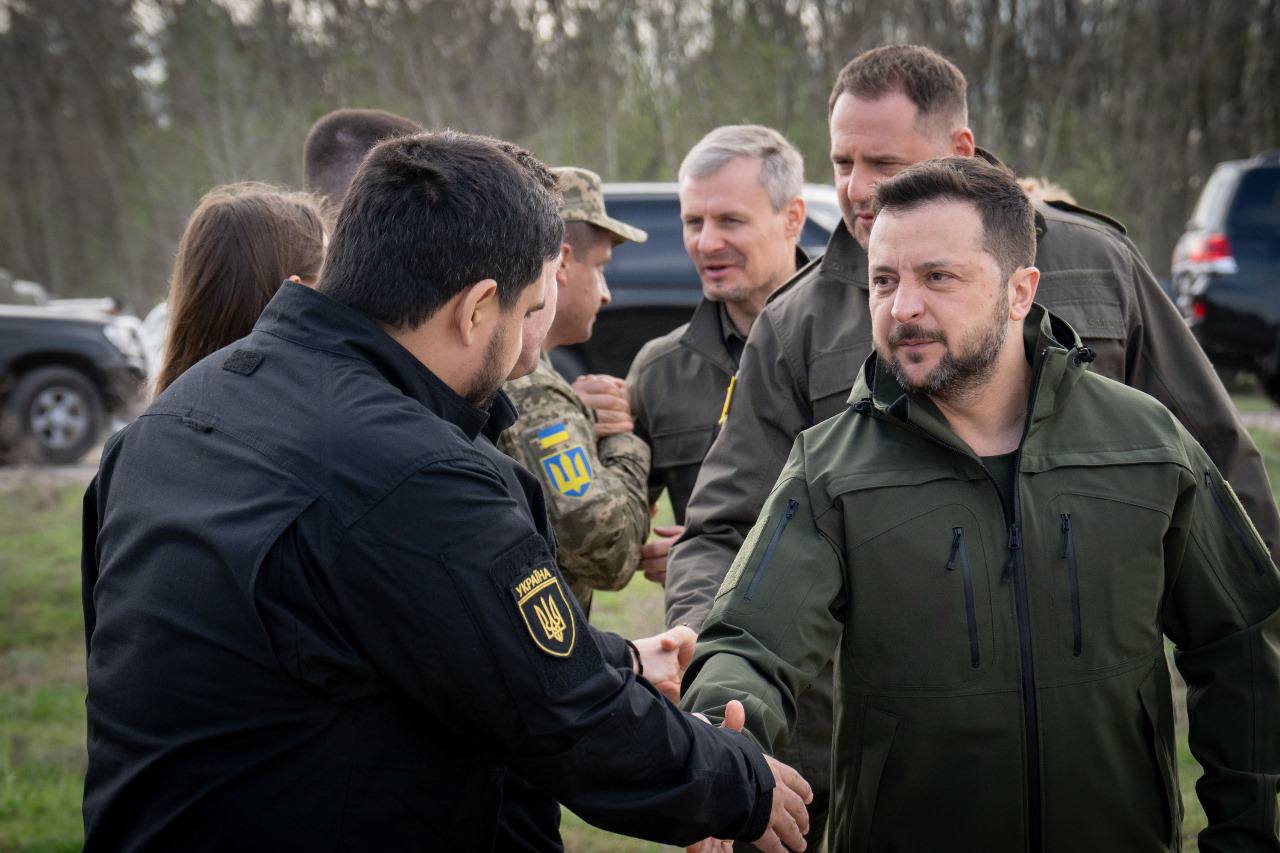On Defense Industry Worker's Day, President Volodymyr Zelensky was presented with a new model of barrage munition capable of striking targets at an operational-tactical depth of over 100 kilometers, writes Militarny.
The unmanned aerial vehicle, whose name is still classified, is already in use on the front lines against Russian forces and has achieved initial victories by successfully targeting, among other things, a Russian anti-aircraft missile system.
In the future, this new development is expected to serve as a means of targeting both ground and aerial objectives, thanks to its speed and powerful warhead.
By hunting down the reconnaissance drones that guide Russian aviation and missile strikes on Ukrainian territory and the front lines, it will be able to reduce the striking potential of Russian forces.
The latest Ukrainian barrage munition is designed to occupy a role similar to the Russian "Lancet," delivering precise strikes against vital combat units situated far from the front lines.
Operating with an electric motor and launched via catapult, like many other drones, it boasts user-friendly deployment.

Its innovative X-shaped fuselage grants the drone exceptional maneuverability, enabling it to engage both stationary and moving targets along varied trajectories, even those approaching at perpendicular angles.
Equipped with a payload capacity of up to 3 kilograms, the drone can carry different types of warheads, including fragmentation, thermobaric, or armor-piercing variants capable of penetrating armor up to 40 millimeters thick, inflicting significant damage and generating secondary shrapnel upon impact.
To counter aerial threats, the drone will feature a fragmentation warhead, activated upon contact or close proximity to the target, triggered by signals from the operator's control station. The resulting explosive shockwave and shrapnel spread are intended to incapacitate Russian reconnaissance aircraft.
This versatile drone is adept at intercepting targets moving slower than 130 kilometers per hour, making it particularly effective against Russian "Orlan-10," Zala, and "Lancet" drones, as well as potentially engaging hovering or approaching helicopters.
A crucial component of the new Ukrainian strike complex is the relay drone, which operates in tandem with the barrage munition. It performs tasks such as target acquisition, tracking in anticipation of the strike drone, and objective monitoring of the impact.
With the relay drone, the barrage munition can operate over long distances with reliable communication. By utilizing it, the operator can overcome the "radio horizon" phenomenon and maintain video signal and control over the drone until the very moment of impact on the target.

Currently, the unmanned aerial system is undergoing testing. Tests are being conducted with continuous launches and deployments in the combat zone, where the drone has already proven effective in destroying Russian equipment.
The price of one such unmanned aircraft is undisclosed, but developers claim it is in line with the cost of most Ukrainian drones in the operational-tactical class.
All drones in the complex are equipped with highly reliable encrypted communication modules (AES256 standard), allowing them to operate in conditions of active suppression by electronic warfare systems.
Another significant innovation for the strike complex is the integration of a "machine vision" system, which enables object recognition and automatic targeting. This technology is already actively used by Ukrainian military personnel for targeting even in areas affected by powerful electronic warfare systems.





















